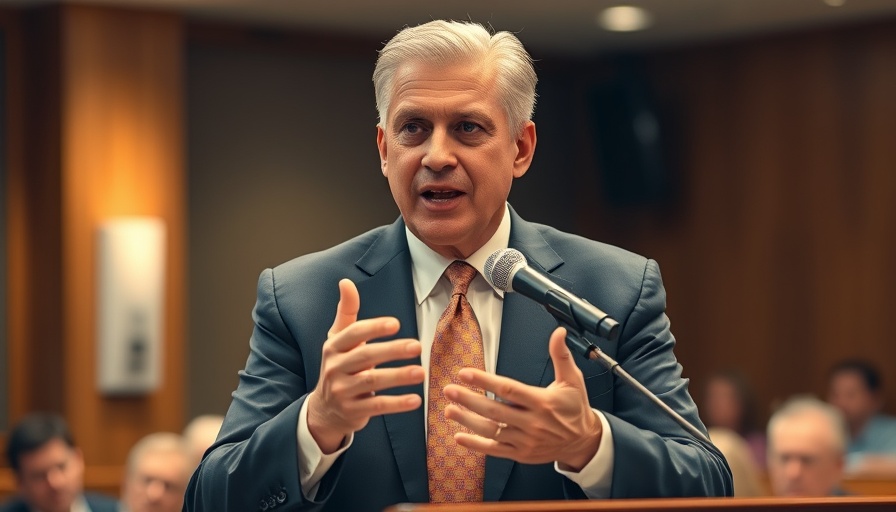
Understanding the Implications of Trump's Criticism of Harvard's Foreign Student Policies
In a recent on-air commentary, Kevin O'Leary, renowned entrepreneur and 'Shark Tank' star, aimed pointed criticism at former President Donald Trump’s remarks regarding Harvard University's policies on foreign students. O'Leary characterized Trump's stance as not only misguided but "stupid," emphasizing that Harvard’s contributions are global and yield significant benefits beyond just American borders.
The Broader Context: Foreign Students at Harvard
Harvard University, like many prestigious institutions, attracts students from around the world, enriching its educational environment and enabling a diverse exchange of ideas. In recent years, foreign students have constituted a substantial portion of the student body, often bringing innovative perspectives that drive advancements in various fields, from technology to healthcare. O'Leary's objections underscore a growing sentiment that the U.S. should retain its welcoming attitude towards international students, particularly as these individuals contribute significantly to research and economic growth.
The Challenges of the Foreign Student Experience
O'Leary's remarks highlight a crucial aspect of the discourse around foreign students: the challenges they face, including visa restrictions, rising tuition costs, and social perceptions. Despite their contributions, foreign students often encounter a landscape of uncertainty that may dissuade them from pursuing education in the U.S. With America's higher education institutions dependent on tuition from international students, any shifts towards exclusion can have long-lasting ramifications.
The Economic Impact of International Students
According to a report from NAFSA: Association of International Educators, international students contribute nearly $40 billion to the U.S. economy. This financial influx supports universities and creates jobs in a wide range of sectors, from hospitality to technology. O'Leary's assertion that Trump's remarks are "stupid" references this very financial contribution and the risk of undermining a crucial economic sector that provides benefits for Americans as well.
Counterarguments: Nationalism vs. Globalism
While O'Leary's stance advocates for an inclusive approach, others argue from a perspective of nationalism, suggesting that prioritizing American students in higher education is essential. They posit that reducing the influx of foreign students might help alleviate competition for scholarships and educational resources. However, this view often overlooks the broader implications of global cooperation and the advantages derived from a multicultural academic atmosphere.
Future Trends: Shifting Attitudes Toward Global Education
As debates about immigration and foreign policy continue to shape national discourse, the future of international student admissions in American universities remains uncertain. If current trends continue, more institutions may face pressure to limit foreign enrollments, which could reverse decades of progress in global collaboration. O'Leary’s assertive remarks may resonate with many who believe that the benefits of diversity in education outweigh the potential downsides of foreign competition.
What This Means for the United States and Its Global Standing
The ongoing conversation surrounding foreign students at American universities is particularly salient as the nation positions itself within a global context. As countries around the world become increasingly competitive in attracting talent, the decision to welcome or limit international students could dictate the U.S.'s future in innovation, research, and economic strength. Universities are seen as the beacon of American values—openness, diversity, and collaboration—which makes the stakes of this debate even higher.
Conclusion: A Call for Thoughtful Engagement
Kevin O'Leary’s criticism of Trump’s remarks not only reinforces a perspective that advocates for foreign student inclusion but also calls for a more thoughtful dialogue surrounding the topic. Understanding the multifaceted implications of foreign student policies is crucial for shaping future educational landscapes. As we continue to navigate these discussions, it is essential that both advocates and opponents come together to consider the long-term impacts on America’s position in the global education arena.
 Add Row
Add Row  Add
Add 




Write A Comment